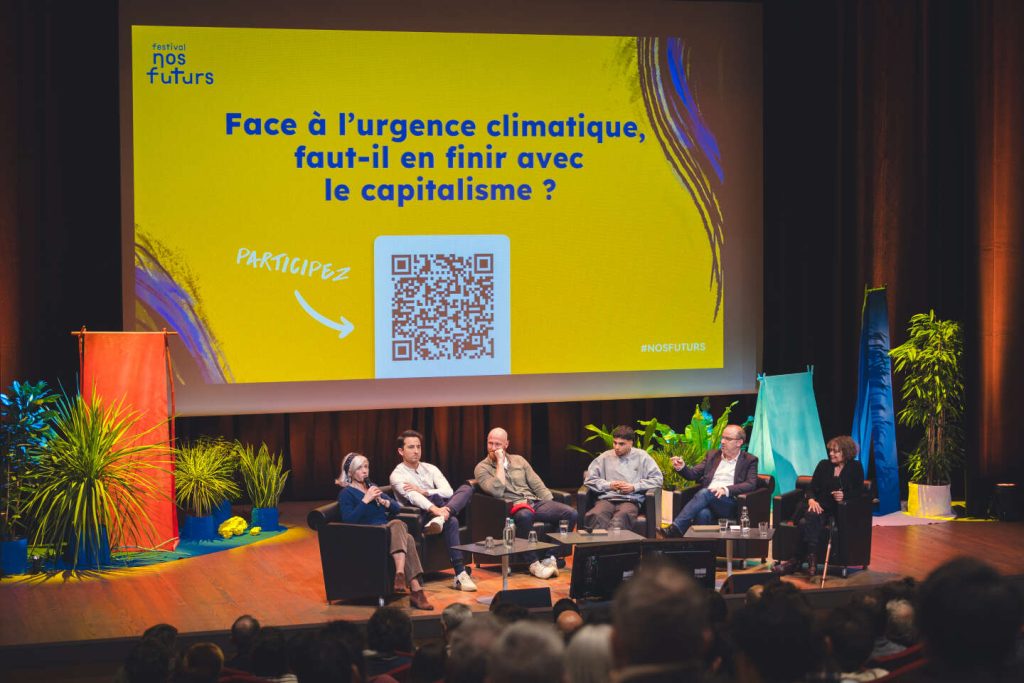Many young people are experiencing eco-anxiety, a fear of climate change and the future, alongside a feeling of powerlessness and rebellion. This sentiment is not unique to them, as evidenced by a report from the CESE in 2023 showing that eight out of ten French people express strong anxiety towards the climate crisis, the highest level ever recorded in France. The question arises of how to improve the situation, and whether it is possible to do so without questioning our economic model. This was a topic of discussion at the 3rd edition of the festival Our Futures, held in Rennes from March 21st to 24th, where a group of students questioned observers of society on capitalism and possible solutions to climate change.
During the festival, a debate was held featuring Gilles Mitteau, a YouTuber and author, Thomas Wagner, founder of the media outlet Bon Pote, Geneviève Ferone, co-founder of Prophil, Hélène Tordjman, an economist, and Féris Barkat, co-founder of Banlieues Climat. The debate focused on defining capitalism, with Mitteau highlighting the search for profit through competition, and Wagner discussing the shared but differentiated responsibility for climate change. The conversation also touched on the role of individuals, political actors, and the concept of decoupling growth from carbon emissions as a solution.
The discussion also delved into the concept of greenwashing, the practice of companies presenting themselves as environmentally friendly without making substantive changes. While some argue that greenwashing is better than nothing, others believe it leads to climate inaction and allows capitalism to perpetuate itself. The debate also explored the idea of degrowth as a potential solution to environmental issues, with questions raised about the acceptability of this concept to the general population and the feasibility of implementing it as a policy.
The conversation further touched on the idea of green growth as a potential solution, with some participants arguing that it is merely a continuation of the same capitalist system that has led to ecological catastrophe. The conversation also highlighted the disproportionate impact of climate change on lower-income groups, emphasizing the need to broaden the definition of ecology to include issues such as air quality and health, particularly in marginalized communities. The question arose of whether ending capitalism is necessary to address the climate crisis, with participants expressing differing views on the topic.
Ultimately, the participants agreed that urgent action is needed to address the climate crisis, but there was no consensus on whether this action required an end to capitalism. The debate highlighted the complexity of the issue and the need for a multi-faceted approach that considers social, economic, and environmental factors. The discussion underscored the importance of engaging all segments of society in the conversation around climate change and the necessity of rethinking our current systems in order to create a more sustainable future.


